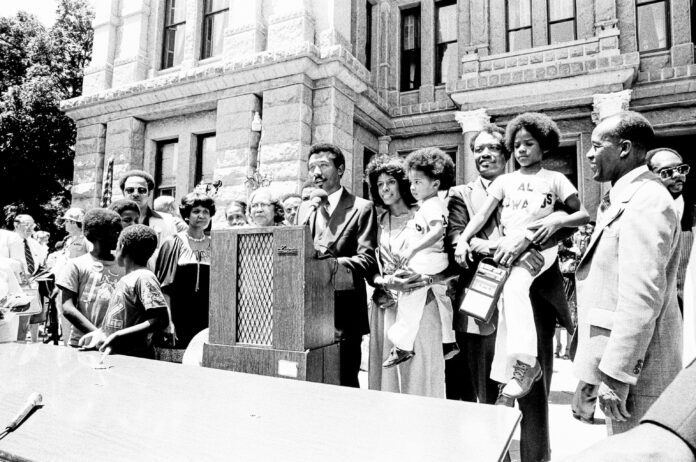
“The power of the white world is threatened whenever a Black man refuses to accept the white world’s definitions.” -James Baldwin
CRD’s special Juneteenth program features Former Texas Congress Member and State Senator Craig Washington, recalling the effort made by the late State Representative Al Edwards, “Father of Juneteenth” to pass the first Juneteenth bill “Texas House Bill 1016” in the 66th Legislature, Regular Session, declaring June 19, “Emancipation Day in Texas” a legal state holiday in 1980.
Scholar-activist/author – Dr. Gerald Horne on his new book “The Counter Revolution of 1836: Texas slavery & Jim Crow and the roots of American Fascism,” Horne holds the Moores Professorship of History and African American Studies at the University of Houston. He’s the author of nearly 40 scholarly books.
Attorney Nkechi Taifa, author, host of “Reparations: History in the Making,” Town Hall, pn July 30, 2024, at Martha’s Vineyard. Taifa is the author of “Black Power, Black Lawyer: My Audacious Quest for Justice” and the host of Human Rights and Justice on Pacifica’s WPFW FM. For more information on the Town Hall, visit Eventbrite or follow her on IG @nkechitaifa
Fearless Fund Ceo and Investor Arian Simone responds to the recent 11th Circuit Court ruling in favor of conservative organizer Edward Bloom, making it now illegal for her non-profit to give $20k business grants to Women of Color (WOC), based on a Civil Rights law from 1866. Bloom has been a key figure in raising funds to challenge Civil Rights Laws throughout the country, with the latest being Affirmative Action in College Admission, as well as federal Diversity Equity and Inclusion (DEI). The latest casualty of his efforts to stifle the growth of marginalized groups is Fearless Fund, and its grantees.
Esther Phillips, Galveston Island Native and R&B vocalist. (December 23, 1935 – August 7, 1984), rose to prominence in 1950, scoring several major R&B hits including “Double Crossing Blues” and “Mistrustin’ Blues” under the moniker “Little Esther.” She was nominated for a Grammy for “Home is Where the Hatred Is” in 1971. “She has often been considered one of the ‘unsung’ pioneers in the world of R&B, stretching back to the early ‘50s when as a child star working with famed bandleader Johnny Otis, she enjoyed a run of chart-topping singles at the age of 15, making her the youngest female artist to ever have an No. 1 R&B hit at the time. The Texas-born vocalist returned in 1962 with a soulful version of the country hit, ‘Release Me’ for Lenox Records, subsequently signing with Atlantic Records for whom she recorded a total of four full albums between 1964-1970 with a brief spell at Roulette Records in 1969.”
Credits
Today’s program was co-produced by Akua Holt and Fahima Seck, with contributions from Nkechi Taifa, Joni Eisenberg, and Dr. Gregg Carr. Akua Holt and Esther Iverem, editors.
Shout Out: Asante Sana to Fahima Seck, WPFW, and Polina Vasiliev, CRD editor.
Playlist
Sounds of Texas composer and musicians
Ornette Colman “Broken Shadows” from the album Crisis, recorded at New York University, March 22, 1969
Esther Phillips, “Home Is Where the Hatred Is”
Poetry




